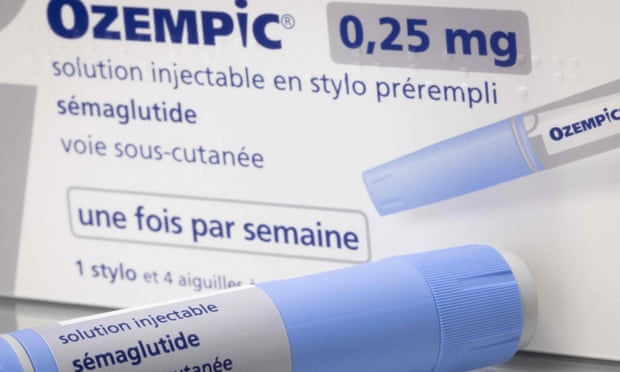UK surgeons have raised concerns about the risks associated with slimming jabs and plastic surgery abroad, given that access to surgery on the NHS to remove excess skin is limited. It is becoming increasingly difficult for patients to receive post-weight loss plastic surgery in the UK, which may result in patients seeking cheaper procedures abroad, even though this poses significant risks. The cost of a tummy tuck in the UK is approximately £4,500 to £6,000, and it could cost as much as £7,000 to £10,000. Patients are advised to consider all of their options before undergoing any surgery and to consult with their doctor to understand all of the potential risks involved.

Rise in Slimming Jabs Could Result in Increased Demand for Overseas Surgeries to Remove Excess Skin, UK Surgeons Warn
A growing number of people using slimming jabs to lose weight could lead to a rise in patients seeking surgeries abroad to remove excess skin, according to UK surgeons. These jabs, including drugs such as liraglutide and semaglutide, have been approved by the NHS for people with obesity, and they have been shown to reduce weight by more than 10%. However, some people have been obtaining the drugs through online pharmacies with a private prescription.
Surgeons have raised concerns that individuals using these jabs may not realize they could be left with excess skin. Even though the newly introduced weight-loss drugs are not likely to produce comparable weight loss to bariatric surgery, a patient might be left with a degree of deflation and redundant skin. If this persists, then plastic surgery would be indicated to address the area. Factors such as the degree of weight loss as well as the patient’s age and genetics can all affect how the skin behaves.
The Joint Council for Cosmetic Practitioners has said that any significant or rapid weight loss could cause problems with excess skin, and that patients should be informed of the risk. Prescription-only medicines like liraglutide and semaglutide require that the patient is fully informed of all side-effects, including excess skin, before agreeing to commence treatment.
Mark Soldin, a consultant plastic and reconstructive surgeon based in London, has seen a growing number of patients seeking procedures to remove excess skin after using slimming jabs. “They were rare and are becoming more frequent,” he said. “I anticipate a significant increase over the next few years.”
After substantial weight loss, the skin tends to become loose on certain parts of the body, including the inner thighs, breasts, arms, and sometimes back folds and buttocks if the weight loss has been significant. Surgeons are warning people about this possibility and advising them to consider all of their options before undergoing any surgery.
In conclusion, while slimming jabs have become increasingly popular, it’s important for people to consider the potential risks associated with these drugs, including the possibility of excess skin. Individuals considering using them should speak with their doctor to understand all of their options and potential side effects.
Concerns Raised by UK Surgeons about Risks Associated with Slimming Jabs and Plastic Surgery Abroad
As more people turn to slimming jabs to lose weight, UK surgeons have raised concerns about the risks associated with plastic surgery to remove excess skin, especially if these surgeries are done abroad. Marc Pacifico, the president of the British Association of Aesthetic Plastic Surgeons, warns that access to surgery on the NHS to remove excess skin is limited, and it is becoming increasingly difficult for patients to receive post-weight loss plastic surgery in the UK. Patients may, therefore, be tempted to seek cheaper procedures abroad, but Pacifico warns that there might not be the same safeguards and assurances that the drugs being used are of the same quality and provenance as those being prescribed in the UK.
The cost of a tummy tuck in the UK is approximately £4,500 to £6,000, plus the cost of consultations or follow-up care. However, Mark Soldin, a consultant plastic and reconstructive surgeon based in London, says that it could cost as much as £7,000 to £10,000. The cost of the procedure abroad may be cheaper, but there are significant risks involved, including the inability to undertake proper research on a surgeon, the risks associated with flying straight after significant surgery, and the lack of structured and accessible follow-up with the surgeon and clinic.
Guidelines on eligibility for procedures such as tummy tucks on the NHS differ across the UK, which means that getting body-contouring surgery after weight loss is part of a postcode lottery. Patients wanting a tummy tuck after non-surgical weight loss in south London must meet effective commissioning initiative criteria such as a BMI of 27 or lower, being a stable weight for 18 months, and experiencing significant problems associated with excess skin. Pacifico warns of the risks associated with plastic surgery abroad after weight loss, such as the higher risk of wound healing problems and post-operative wound infection issues than non-weight loss plastic surgery.
While weight loss jabs are still new, Soldin believes there needs to be greater communication about who they are suitable for, as well as monitoring of patients using the drugs through primary care. He warns that people should understand that they may not be happy with their body after they’ve lost weight and that fixing it may not be available on the NHS, which is struggling to look after the health of the population.
In conclusion, while slimming jabs may be effective in helping people lose weight, there are risks associated with plastic surgery to remove excess skin, especially if these surgeries are done abroad. Patients are advised to consider all of their options before undergoing any surgery and to consult with their doctor to understand all of the potential risks involved.
Don’t miss interesting posts on Famousbio









